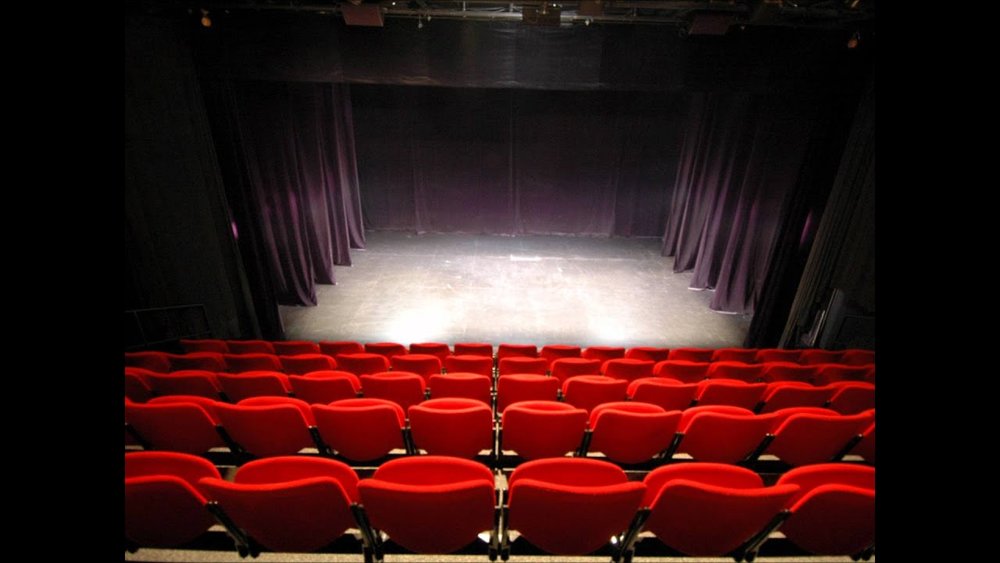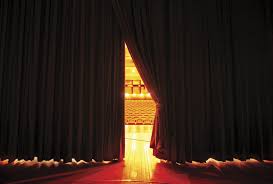by Hazel Anna Rogers for the Carl Kruse Arts Blog
The mist has lifted, and life is back. It is an abyss, a swamp of unknowing and learning how to live without the glistening sheen of adrenaline that glosses over your eyes for the weeks and days preceding and encompassing a show. You lie flat, and all appears flat. Everything reminds you of it, and you are reminded of the loss of it. Life is back, and it is clear as day.
My company and I were reminded on the last day of the show that theatre is ‘live’, and that that is both the beauty and the curse of it. Its liveness is what can make it so much greater than any other acting form, and yet it is also its downfall – while simultaneously, if it is indeed great, it will be remembered, it must yet always live within the mind of its beholder, never to be looked upon again, and so its greatness dies a death after the final bow.

The stage is effortlessly alive. It is a space to breathe and swim in, and its heart is palpable, touchable, unlike the screen. I love film, and television, but theatre is a beast apart from these things. How wonderful to be able to reach out and brush the leg of the actor as they scurry in the round, to smell their skin and feel their breath on you as they pant and sweat and scream and whisper. How is it than an art so old can be breathed into and brought back to light out of the fetid dust it has oftentimes become. Theatre is a difficult place, a breeding ground for ham and cringe and fault. It demands much, and, if committed to, its reward is jubilance and a drug-like high. Laziness is all too obvious, all too noticeable on a stage. One cannot hide, one cannot be tired, one cannot be human, when one acts in the theatre. A missed beat hangs like a rotting beam of wood. A forgotten prop is befitted with mime, and it breaks the mind of the observer in half, letting reality seep through like worms pushing through a rain-covered mud. A bored actor stood in the corner of a stage stands out like a pustule, bringing all eyes to their ugly treason. There is no room for mediocrity in theatre, and yet mediocre theatre is made, making the art harder and harder to work within. One bad song can be skipped. But a bad play repulses like a disease. An hour trudges by as boots through a waterlogged field. An uncomfortable chair takes the attention’s precedence over the action afore the onlooker. This is why the inevitable end of the run of an astonishing play is so very sad. It is a tragedy that the world must keep turning, and that we can dwell but for a second on a moment so great.

I don’t know what to do with myself. My whole body has come crashing down. My bones feel heavy, and I can barely lift myself. The wild rush of the show run has left me crumpled while, at the time, it made me feel as though I could go on and on and on without stopping. Veins of fire turned ash, now. Still. What a dream it was. You know, I still pinch myself thinking on it. Me? Here? Doing this? I could but wish for others to feel what I have felt during this past week. My mind strays back to the day I was accepted, and then further on to the first night I spent in my home in London, then to the first day of the course, when I walked home teary-eyed. Many a moon that was ago. Today I skip and leap even with my fragile temperament. I am low, but am ready to be lifted high again. How endless the process of a show is. How panicked one becomes when one really realises the show is come upon them after weeks of tough drudgery through lines of text not altogether imaginable until they’re spat on stage. How suddenly it all ends.
Mother Courage and Her Children is an important play. An integral play. It speaks to an audience in a way quite unlike the war films and history books do. Though the adaptation we performed was set in 2080, it harkens to our lives today, to the wars that prevail around and through us, and to the depravity and beauty of our sorry world. My character, Kattrin, was at once the beacon of hope and compassion at the centre of the play, and yet ended the play as the very horror at the root of it, Mother Courage herself. We have all of these things within us. The kindness and softness of a child, and the brutality and violence of a mother who has lived through trauma so profound she knows not what else to be other than tough and sharp and cold. I will be forever thankful to have lived through Brecht’s world, and to have revealed it to others.
I could continue at lengths about theatre and the stage and Brecht’s play itself, but perhaps I should end this piece by speaking on something else. For those who don’t know the dressing room, and for whom its name speaks of secrets and celebrity and mystery, I shall tell you of it now. It is a warm place, filled with the oddity of bodies fueled by nervousness and tiredness and excitability. Bodies naked and clothed, passing around sticks of charcoal to dirty the edges of their faces, bodies coated in thick layers of sweat and grime and cloth. Bodies dancing to music off of a small black speaker, laughing together, hugging, weeping together. Women howling and singing and stretching before they go into the wings around the stage. Women cheering one another, eating together, sharing thoughts and jokes and love and pain. The dressing room is the place in which it all begins. A stage manager comes in and calls the ‘half’. The squirming commences, the jumping about, the endless anxious toilet visits, the swigs of tepid water from old plastic bottles, the hand squeezes, the giggling. A stage manager comes in and calls ‘beginners’. The performers become cool, collected, zoned in. They breathe as one. I leave them, and wish them well. One clasps me by the head and says to me: ‘You are the heartbeat’. I go down, alone, and enter the stage. The audience have not yet arrived. I sit inside the metal frames of the ice cream van in the centre of the room, and become her. The audience file in. Blackness. Silence. The play begins.
==========
The Carl Kruse Arts Blog homepage is at CarlKruse.net
Contact: carl AT carlkruse DOT com
Other articles by Hazel Anna Rogers include Finding My Clown, Channeling Animals, and Six Viewpoints.
Carl Kruse is also on Stage 32.
I really liked this. Thanks Hazel.